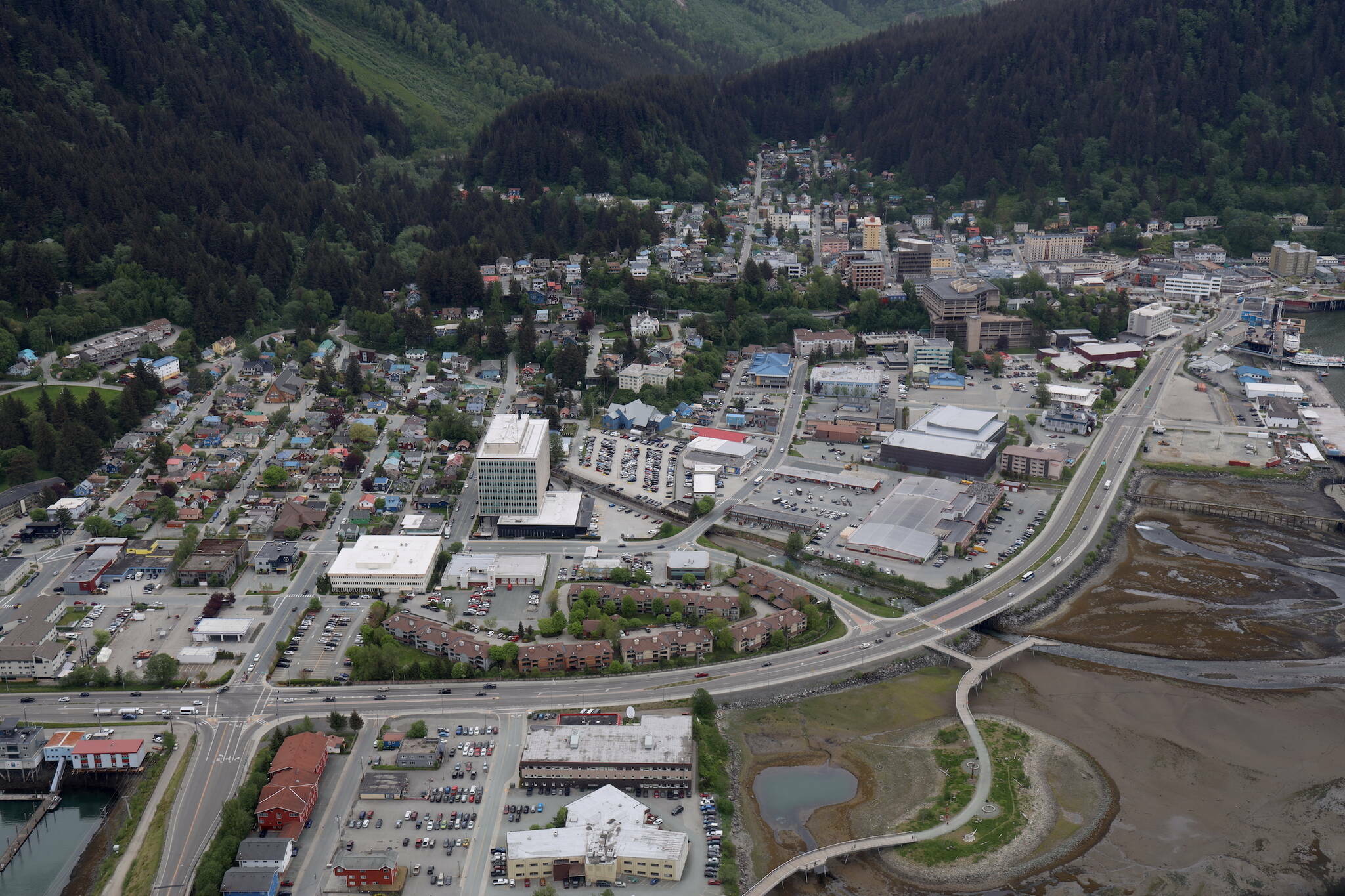A task force to study further regulation of short-term rentals got the near-unanimous support of Juneau Assembly members on Monday night, following a generally favorable analysis of a controversial registration program that went into effect last October.
The registration policy applies to residential spaces occupied for less than 30 days, not including hotels and similar guest facilities. The number of residences used for short-term rentals has been “just shy of 600” as of late March, about half of which are actively being marketed at any given time, Deputy City Manager Robert Barr told Assembly members during a Committee of the Whole meeting.
“Since we see that overall number continuing to slowly tick up, maybe the rate of growth has slowed,” he said. “It does appear to be slower than in past years when we saw these more significant leaps in that total number.”
The city has about 14,000 total dwelling units and a shortage of available long-term spaces is among the concerns prompting consideration of short-term regulations.
Barr said there is a 79% compliance rate with the requirement for operators to register cost-free with the city, which city leaders have said will ensure sales taxes are being paid and provide data about the market for such rentals.
A March 26 report compiled for the city by Harmari Short Term Rental Compliance Service states:
• 88.7% of short-term listings are for an entire home or apartment, 11.3% are for a private room.
• 82.6% of short-term operators have a single listing.
• Airbnb is the dominant platform, with 400 of 597 listings.
• The average nightly rate is $280.54.
About half of short-term operators live on the property they are renting, Barr said.
“That could mean that they’re renting part of their house that they live in,” he said. “It could also mean that they’re renting a tiny home or an accessory dwelling unit that is unattached from their house…I mentioned that specifically because I think that I think that might be one of the regulatory options that the (Assembly) might be interested in.”
Enforcement of the registration requirement is occurring through letters sent to people offering listings on services such as Airbnb, if they are not already registered, Barr said.
“We send out two letters as part of this program,” he said. “The first is a letter saying ‘Hey, we think you operate a short-term rental based on this listing that we found online. You probably don’t know we have the short-term rental program where you need to register, here’s how you do it.’ The second letter is a little bit more like ‘Hey, we didn’t get a response. Here’s what happens if you don’t register. Give us a call and we’ll help you get registered.’”
In some instances people receiving the letters have let city officials know registration is not necessary because they are no longer offering the short-term rental, sold the property or for some other reason, Barr said.
Stricter policies for short-term rentals elsewhere tend to focus on limiting the number of short-term rentals available and/or mitigating the impact of such rentals on the surrounding neighborhood, according to Barr.
A majority of Assembly members expressed a desire to consider further regulation of short-term rentals. But Christine Woll said the process should involve people from throughout the community rather than merely discussions among city leaders.
“I worry about this group spending a lot of time debating the pros and cons of regulation and then, coming to a final ordinance, the people who don’t want to regulate and are the people most impacted by the regulations that we choose are going to show up and be in opposition,” she said. “And I think that’s part of what we do. But I think in this case we’re dealing with something very complex. There’s another alternative…we assign a working group or a task force or something, (and) we ask the community to come up with the solutions themselves. I think in my four years on the Assembly that’s what we’ve been most successful at is when we are asking the community to weigh the pros and cons before we all can come to a conclusion.”
That suggestion was approved by Assembly members without a formal vote. However, Alicia Hughes-Skandijs was the lone member expressed opposing, stating that while public input is essential the issues involved are legally complex and highly specific, and “this Assembly is going to have to decide whether we have the stomach to regulate that.”
Other Assembly members also emphasized they support short-term rentals to an extent, and they and family members have benefited from offering them.
Assembly member Paul Kelly said his retired parents in Anchorage operate a short-term rental and he would like to ensure Juneau residents in similar situations are able to continue doing the same.
“What I would like to see are tools that we could use that would encourage that sort of behavior, to make it easier for people who live someplace to already be able to continue to age in place and be able to run a short-term rental out of their house,” he said.
Concern about further regulations discouraging short-term rentals was expressed by Assembly member Wade Bryson, who said they offer an opportunity to boost independent tourism during a period when cruise ships are a target of some local officials and residents due to their impacts.
““Every ounce of difficulty that we add to STRS only encourages more cruise ship visitation,” he said, using an acronym for short-term rentals. “STRS are in direct competition to cruises — we want to invite the people to come to do that kind of vacationing because we’re trying to push back against the cruise industry.”
• Contact Mark Sabbatini at mark.sabbatini@juneauempire.com or (907) 957-2306.

